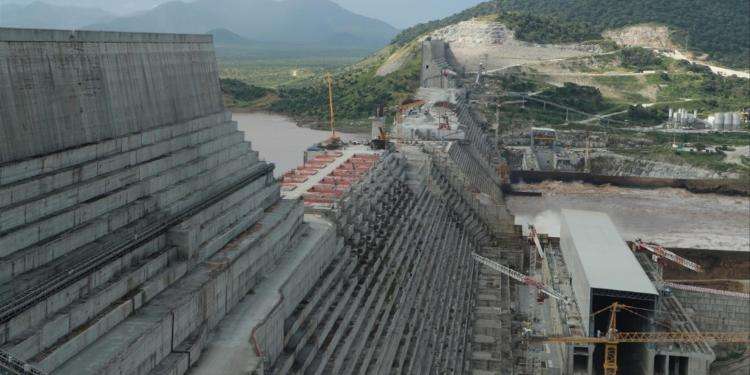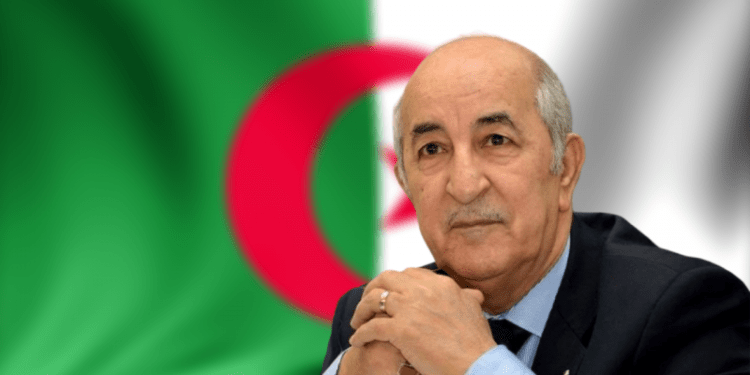Algeria has started intense diplomatic moves to reach a solution to the Grand Ethiopian Renaissance Dam (GERD) crisis between Ethiopia on the one hand and Egypt and Sudan on the other. Why is Algeria intervening in the crisis now?
Diplomatic efforts and vigorous efforts launched by Algeria over the past few weeks have begun to become clear in the wake of President Abdelmadjid Tebboune's statements that his country has an initiative to solve the GERD crisis, and that Algerian efforts have received a great response from all concerned parties.
Tebboune, who expressed great confidence in the possibility of his country's mediation in resolving the crisis between Egypt, Sudan and Ethiopia, stressed that the initiative is "purely Algerian, and no party has dictated it to us."
Tebboune's statements were preceded by shuttle moves by veteran Foreign Minister Ramtane Lamamra, who met with the President and Prime Minister of Ethiopia.
[caption id="attachment_262847" align="aligncenter" width="1024"] Ethiopian President Receives Algerian Foreign Minister in Addis Ababa- Press Photo[/caption]
Ethiopian President Receives Algerian Foreign Minister in Addis Ababa- Press Photo[/caption]
The Sudanese Foreign Minister, Maryam Al-Mahdi, who met with Lamamra before his arrival in Egypt, stressed that there is an Algerian initiative calling for a direct meeting between the parties to resolve differences, affirming that her country welcomes it, according to a statement by the Sudanese Sovereignty Council.
During a joint press conference with his Egyptian counterpart Sameh Shoukry, after a meeting held between them upon his arrival in Cairo, Lamamra said that it is important to reach satisfactory solutions, especially since "the relations of the parties are going through a delicate stage."
Tebboune affirmed that he had received positive reactions from the downstream countries - Egypt and Sudan - adding that "reason and logic must be used in order for Africa to enjoy stability and return to international forums, especially since the Security Council did not decide on the issue and returned it to the African Union."
Tebboune stressed that "The Algerian mediation will not stop until it is resolved," and that his country has "no interest except the effort to bring views closer."
[caption id="attachment_253549" align="aligncenter" width="750"] GERD[/caption]
GERD[/caption]
Algeria’s balance is full of rich experiences in the field of peaceful international conflict resolution, as the Algerian diplomacy has succeeded over decades in defusing a number of crises, most notably the pivotal role it played in ending the Iraqi-Iranian conflict and the signing of the Algiers Agreement in 1975, a role played by the late President Houari Boumediene and his foreign minister at the time Abdelaziz Bouteflika.
Lamamra had met, during his stay in Ethiopia, with the African Union Commissioner in charge of Political Affairs, Peace and Security Issues, Adewe Bankul, and "the two sides reviewed situations of conflicts and crises throughout the continent and the prospects for their solution," according to what the Algerian Foreign Ministry announced, quoting Lamamra, that Algeria "supports the work."
Algerian Mediation... Why Now?
Algeria's diplomatic moves in the recent period came after what was described as a period of diplomatic stagnation in Algeria, which some attributed to the internal crisis that occurred in the country and the ensuing movement and demonstrations that made the country go through a period of instability.
Available Cards
As the GERD crisis is getting complicated, especially as Ethiopia continues in the stages of filling the dam without any agreement with the two downstream countries on a specific date for those stages, nor on the quantities of water that are deducted from their Nile water balance.
As well as Addis Ababa's absolute refusal to sign any binding agreement on the dam, regardless of its terms, which angered Egypt and Sudan greatly, exacerbating the intensity of the exchanged statements between the two parties, with some fearing the outbreak of military confrontations, especially after the Security Council lifted its hand on the issue and referred it again to the African Union.













